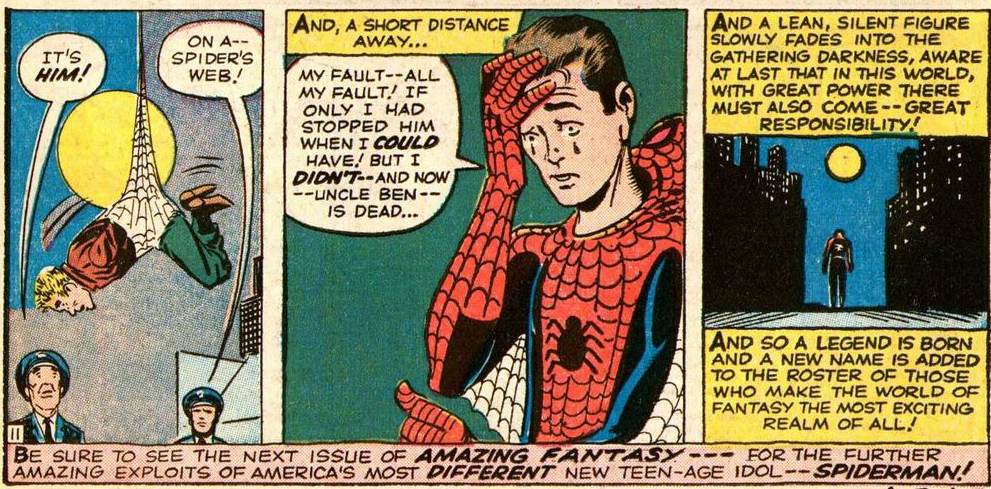Few entrepreneurs have had such an impact on the American landscape as entrepreneur Jeff Bezos. Known to many as the founder of Amazon, the world’s largest e-commerce store, Bezos is also the founder of other enterprises such as Blue Origin, his space company. Here we take a closer look at lessons we can learn from this visionary and exceptional individual.
Jeff Bezos, 2005. etech
Have a Vision and Plan for the Long Term
While the founders of most tech startups were eager to rake in the dollars and establish their ‘credibility’ to investors through immediate profitability, Amazon founder Jeff Bezos took a decidedly different path. He shared his innovative ideas and long-term vision early on in his letters to shareholders and his team, asking them to make up their own minds whether his venture was worth investing in or not. He was frank about it, sharing that most investors did not think so in his first 1998 Letter to Shareholders.
Despite the low expectations set by financial pundits, Amazon defied such dire predictions. Shockingly enough, the stock price went from $5 a share to over $1800. There were times in between as well where the stock dipped but unlike many others, Bezos did not see the value of the business defined by its share price alone. From day one, it was clear that Amazon had a long-term vision and intended to expand at scale, as fast as it could to meet that vision.
Amazon is truly a story of longevity and remarkable employment. In terms of business longevity, Amazon has outlasted many other competitors and players in the same field, while achieving a remarkable feat - employing over 500,000 people and thus becoming America’s second largest employer after Walmart.
Establish and Grow High Standards in Your Company Culture
In his annual letters to shareholders, Bezos is refreshingly honest and direct, while explaining his long-term vision for the company.
“How do you stay ahead of ever-rising customer expectations? There’s no single way to do it — it’s a combination of many things. But high standards (widely deployed and at all levels of detail) are certainly a big part of it. We’ve had some successes over the years in our quest to meet the high expectations of customers. We’ve also had billions of dollars’ worth of failures along the way. With those experiences as a backdrop, I’d like to share with you the essentials of what we’ve learned (so far) about high standards inside an organization.”
Be customer-obsessed.
Bezos explains how it is much more important to focus on the customer instead of your competitors. You have to identify your customer.
“The No. 1 thing that has made us successful by far is obsessive compulsive focus on the customer as opposed to obsession over the competitor.”
Image via Amazon
By focusing on what customers want or need, Amazon has won customer loyalty and thus high profitability. A great example of this is Amazon Prime which offers free, fast shipping to its customers. That thinking has paid off. Amazon Prime customers spend an average of $1,300 in a year, approximately twice that of non-members. Amazon has over 100 million Amazon prime customers.
“Who is your customer for the Washington Post? Readers. Full stop. Where do the advertisers want to be? Where the readers are.”
Invest in ideas with unlimited upside.
“A dreamy business product has at least four characteristics. Customers love it, it can grow to very large size, it has strong returns on capital, and it’s durable in time—with the potential to endure for decades. When you find one of these, don’t just swipe right, get married.”
The 2 Pizza Rule: Get focused work done with small teams.
Bezos is famous for his “2 Pizza Rule” where he suggests that you work in smaller teams and never have meetings that require more than two pizzas to feed everyone present. This helps the group stay focused and nimble, and avoid long, unproductive meetings.
Every new idea has started out with a small group of people.
“I want it to always have the heart and soul of a small company.”
Decentralize decision-making and delegate.
Bezos, like many successful CEOs and leaders of large organizations have said before, emphasizes the importance of delegating and decentralizing decision-making. This enables swifter, agile responses to any customer need and opens up the door to innovation and new ideas. Bezos recognizes the potential for invention and creativity here and takes it a step further.
“We have the good fortune of a large, inventive team and a patient, pioneering, customer-obsessed culture — great innovations, large and small, are happening everyday on behalf of customers, and at all levels throughout the company. This decentralized distribution of invention throughout the company — not limited to the company’s senior leaders — is the only way to get robust, high-throughput innovation.”
Focus on inputs and the outputs will take care of themselves.
Unlike a majority of publicly traded companies that invest a lot of time and energy discussing actual financial results and debating projected financial outputs, Amazon puts its energy and time into improvement.
“To be clear, we take these financial outputs seriously, but we believe that focusing our energy on the controllable inputs to our business is the most effective way to maximize financial outputs over time. . . . Our goal-setting sessions are lengthy, spirited, and detail-oriented. We have a high bar for the experience our customers deserve and a sense of urgency to improve that experience.”
Measure your company by free cash flow.
“Why focus on cash flows? Because a share of stock is a share of a company’s future cash flows, and, as a result, cash flows, more than any other single variable, seem to do the best job of explaining a company’s stock price over the long term.”
Nurture your young ideas to grow into large enterprises.
Few companies or leaders are as patient as Amazon or CEO Jeff Bezos have been regarding the time it takes ideas to take root, grow and be financially viable and self-sustaining.
“In some large companies, it might be difficult to grow new businesses from tiny seeds because of the patience and nurturing required. In my view, Amazon’s culture is unusually supportive of small businesses with big potential, and I believe that’s a source of competitive advantage.”
R&D is part of every department.
While Amazon is famous for its emphasis on a data-driven approach throughout its online and physical stores, Bezos also points out how essential research and development, achieved through experimentation, brainstorming and invention is to the company’s internal work processes.
Image via FactSet
“And while many of our systems are based on the latest in computer science research, this often hasn’t been sufficient: our architects and engineers have had to advance research in directions that no academic had yet taken. Many of the problems we face have no textbook solutions, and so we — happily — invent new approaches.”
Build on Top of Existing Infrastructure, Embrace Change and Accelerate Growth
“The current online shopping experience is the worst it will ever be. It’s good enough today to attract 17 million customers, but it will get so much better. Increased bandwidth will result in faster page views and richer content. Further improvements will lead to ‘always-on access’ (which I expect will be a strong boost to online shopping at home, as opposed to the office) and we’ll see significant growth in non-PC devices and wireless access. Moreover, it’s great to be participating in what is a multi-trillion dollar global market, in which we are so very, very tiny. We are doubly-blessed. We have a market-size unconstrained opportunity in an area where the underlying foundational technology we employ improves every day. That is not normal.”
Know Your Strengths and Work at Your Most Productive Times.
In an interview with David Rubenstein at the Economic Club of Washington D.C., Bezos explained that he aims to have his ‘high IQ’ meetings in the morning before lunch. He prioritizes sleep, exercise and time with his family.
“I like to read the newspaper, I like to have coffee, I like to have breakfast with my kids before they go to school. So, I have my puttering time—it’s very important to me.”
He spends time with his family in the morning, reads the newspaper, enjoys coffee and personal time before diving into work at Amazon and his other ventures.
“I like to do my high-IQ meetings before lunch. Anything that’s going to be really mentally challenging—that’s a 10 o’clock meeting. Because by 5 p.m., I’m like, ‘I can’t think about that today. Let’s try this again tomorrow at 10.”


















